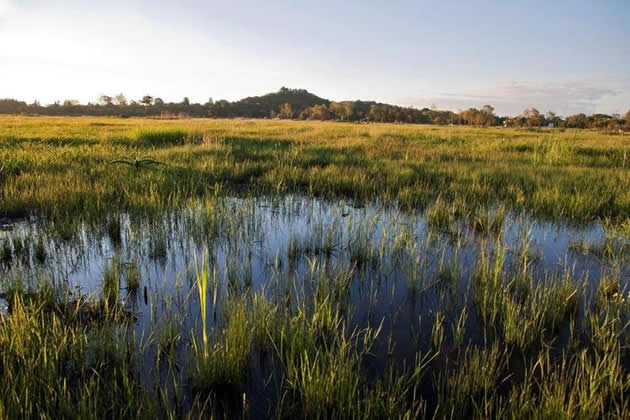COMMENT: Let us leave wetlands alone

The torrents that have been falling countrywide in recent weeks have hammered the point home so resoundingly.
Scores of people who built houses in wetlands in Harare, Chitungwiza and Gweru had to be evacuated after their homes were flooded. They lost valuable property after it got drenched in the knee-deep water. As rains continue to fall and are forecast to continue falling over the next month or so, the people are likely to remain at temporary shelters provided by councils or aid organisations.
The message from the Environmental Management Agency (Ema) has always been for people not to build on wetlands. Some did not take heed, but the experiences of the past month or two have hammered that message home.
The Environmental Management Act (Cap 20; 27) defines wetlands as “Areas of marsh, fern, peatland or water, whether natural or artificial, permanent or temporary, with water that is static or flowing, fresh, brackish or salty, including riparian land adjacent to the wetland.”
Wetlands are important for a number of reasons. They provide important habitats for a wide variety of wildlife, ensure food security if sustainably utilised, maintain and improve water quality by filtering contaminants and excessive nutrients, renew groundwater supplies, can function as fire breaks and help control flooding and reduce flood damage.
Because of the foregoing, construction is banned on wetlands. The Environmental Management Act (Cap 20:27) gives the Minister of Environment powers to declare any wetland to be an ecologically sensitive area and may impose limitations on development in or around such an area and “prohibit the reclamation or drainage, disturbance by drilling or tunnelling in a manner that has or is likely to have an adverse impact on any wetland or adversely affect any animal or plant life therein.”
Yet these provisions of the law have been flouted by those parcelling out land to desperate home seekers who have now been rendered homeless or insecure by flooding.
Meanwhile, the unscrupulous council officials and private land developers who sold the residential stands are now rich and ensconced safely in their cosy, upland homes. It is really sad that because some of our people are desperate to own a house in an urban area, they get easily duped by land developers and corrupt council officials.
Their plight and the daylight robbery perpetrated by the land barons has caught the attention of the Government.
Addressing the nation Thursday, President Mnangagwa said measures were on the way to redress the challenges that home owners are facing adding that those who sold the stands to them would be brought to book. He ordered the Ministry of National Housing and Social Amenities, along with other ministries, departments and agencies to immediately identify such areas and ascertain the quantum of affected households.
Alternative land has to be urgently identified and developed for relocation of families with houses built on wetlands and other undesignated areas, he said.
“Government is however, deeply concerned with the illegal expansive construction in wetlands and river basins as well as the construction of houses without the provision of requisite infrastructure such as roads, water, sewer and electricity. The current excellent rains received across the country have exposed and laid bare the extent of the associated problems in unplanned settlements in our urban, peri-urban and growth points,” said the President.
According to the UN International Organisation of Migration and the Civil Protection Unit, 9 661 homes had been destroyed or damaged in the country as at January 27.
The country has seven protected wetland sites and has a total of 1 117 wetlands covering 793 348 hectares which is about 1,5 percent of the country’s land area, Ema says. It estimated in March last year that only 189ha of wetland areas in Chitungwiza 920ha in extent had not been defiled while in Harare, 60 percent of wetlands had been interfered with.
Clearly, the ecological, financial and emotional cost of interfering with wetlands is immense. However, we would not have ended up here if urban councils were up to the task of providing safe, affordable housing stands for the people.
We would not have ended up here if there were no unscrupulous private developers who sell residential stands to people, knowing full well that parceling out wetlands is an offense.
We challenge urban councils to ensure that they provide enough land for residents to build houses away from wetlands. As for the land barons, our message to them is that the long arm of the law will soon catch up with them as the President warned on Thursday.
The relevant ministry must work with speed identifying the affected households and providing them with alternative spaces to build homes.
Anyone who has built a house will appreciate the financial, physical and emotional drain of doing so. It is tough that many of those displaced by flooding have to undergo that strain once again building new homes away from wetlands.
It is unfortunate, but that is the only sustainable way out of the challenge.









Comments